How AI and ML used in Healthcare?
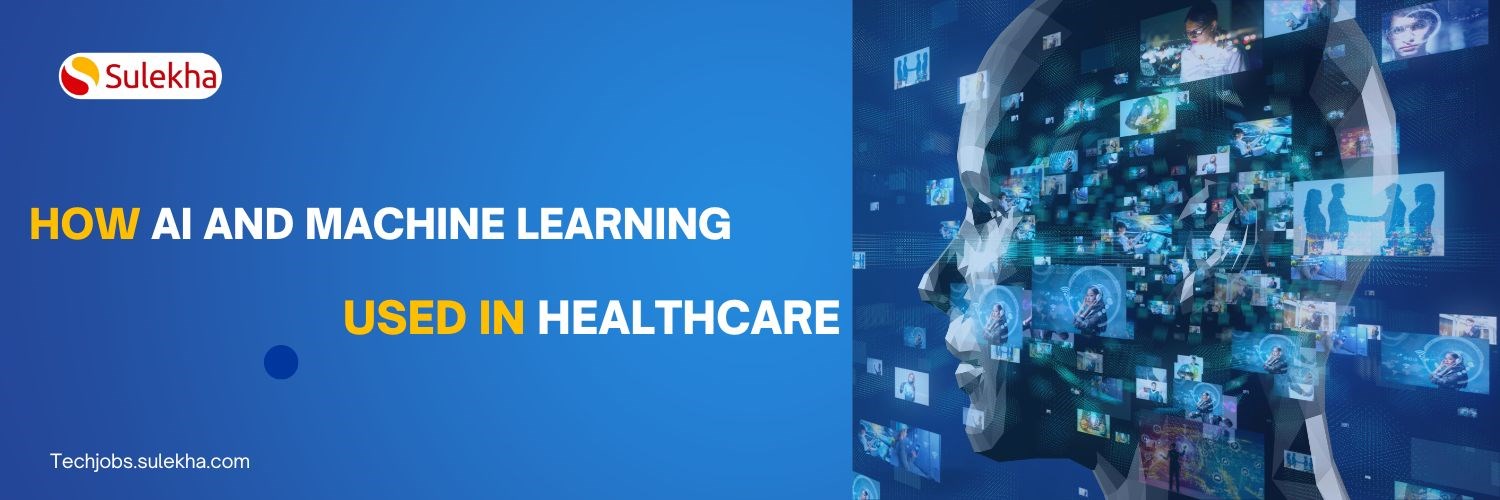
How AI and ML are used in Healthcare?
What is the innovative use of AI and ML in healthcare? Machine learning and AI for healthcare institutions are also responsible for accelerating drug discovery, development, and production. Moreover, with the aid of AI and ML, we can quickly scan EHRs for specific patient data, schedule appointments with patients and automate the process. Furthermore, analyzing patient records, medical imaging, and discovering new therapies, answering patient questions to assisting with surgeries and developing new and AI can analyze medical images and help medical professionals diagnose and treat diseases.
The healthcare industry is on the cusp of a technological revolution driven by rapid advancements in artificial intelligence (AI) and machine learning (ML). These cutting-edge technologies are poised to reshape healthcare delivery, from improving patient outcomes to enhancing operational efficiency.
The Rise of AI and ML in Healthcare
The healthcare sector has long been a prime target for AI and ML applications, as these technologies hold immense potential to tackle some of the industry's most pressing challenges. According to a report by MarketsandMarkets, the global AI in healthcare market is expected to grow from $6.9 billion in 2021 to $67.4 billion by 2027, at a CAGR of 44.9% during the forecast period.
How is AI and ML is used in healthcare?
1. Abundance of Healthcare Data: The healthcare industry generates vast amounts of data, from electronic health records and medical imaging to genomic sequencing and wearable device data. AI and ML algorithms thrive on large, diverse datasets, making the healthcare sector an ideal testbed for these technologies.
2. Demand for Personalized Medicine: Patients increasingly seek more personalized and tailored healthcare solutions. AI and ML enable the development of predictive models that can identify individual risk factors, optimize treatment plans, and deliver personalized care.
3. Need for Improved Efficiency and Accuracy: Healthcare professionals are under constant pressure to provide high-quality care while reducing costs and minimizing errors. AI and ML can automate repetitive tasks, enhance clinical decision-making, and improve the accuracy of diagnoses and treatments.
4. Advancements in Computing Power and Data Storage: The exponential growth in computing power and the increasing availability of affordable data storage solutions have made deploying complex AI and ML algorithms in healthcare settings more feasible.
How is AI used in healthcare decision-making? and Applications of AI and ML in Healthcare
The healthcare industry is already witnessing the transformative impact of AI and ML across various domains:
1. Diagnostic Imaging: AI-powered image analysis tools can assist radiologists in detecting and diagnosing diseases more accurately and efficiently. For example, AI algorithms have demonstrated the ability to identify signs of breast cancer, lung cancer, and other conditions with high precision, potentially reducing the workload of healthcare professionals.
2. Drug Discovery and Development: AI and ML are revolutionizing the drug discovery process by accelerating the identification of potential drug candidates, predicting drug-target interactions, and optimizing clinical trials. This can lead to faster and more cost-effective development of new therapies.
3. Predictive Analytics: AI and ML models can analyze patient data, including electronic health records, genomic information, and real-time sensor data, to predict the risk of disease onset, identify high-risk patients, and recommend preventive measures or early interventions.
4. Virtual Nursing Assistants: Conversational AI-powered chatbots and virtual assistants can provide 24/7 patient support, answer questions, provide personalized health advice, and even monitor symptoms, reducing the burden on healthcare professionals.
5. Workflow Optimization: AI and ML can automate administrative tasks, such as scheduling appointments, processing insurance claims, and managing supply chains, freeing healthcare workers to focus on patient care.
6. Precision Medicine: By analyzing genomic data, medical history, and lifestyle factors, AI and ML can help healthcare providers develop personalized treatment plans, improve medication management, and enhance the effectiveness of therapies.
Challenges and Considerations in healthcare
While the potential of AI and ML in healthcare is immense, several challenges and considerations need to be addressed:
1. Data Privacy and Security: The healthcare industry deals with susceptible patient data, and the integration of AI and ML systems must comply with strict data privacy regulations, such as HIPAA, in the United States.
2. Bias and Fairness: AI and ML models can perpetuate or amplify existing biases in healthcare, leading to disparities in access and outcomes. Ensuring the fairness and inclusivity of these technologies is crucial.
3. Interpretability and Explainability: Healthcare professionals and patients often require transparency in the decision-making process of AI and ML models, which can be challenging for complex algorithms.
4. Regulatory Oversight: The healthcare industry is heavily regulated, and the integration of AI and ML technologies must undergo rigorous testing and approval to ensure patient safety and clinical effectiveness.
5. Workforce Adaptation: The adoption of AI and ML in healthcare will require healthcare professionals to develop new skills and adapt to the changing technological landscape, which may require significant investment in training and upskilling.
The Future of AI and ML in Healthcare
As the healthcare industry grapples with the COVID-19 pandemic, the need for innovative, data-driven solutions has never been more pressing. AI and ML promise to transform the way healthcare is delivered, improve patient outcomes, enhance operational efficiency, and, ultimately, save lives.
By embracing these transformative technologies, healthcare organizations can stay ahead of the curve, deliver more personalized and effective care, and contribute to the industry's ongoing evolution. As the adoption of AI and ML in healthcare accelerates, the future of healthcare is poised to become more intelligent, efficient, and patient-centric.
What are some real-world examples of AI improving patient care?
Here are a few real-world examples of how AI is improving patient care in healthcare:
1. Improving Diagnostic Accuracy: AI algorithms analyze medical images like X-rays and CT scans to detect signs of diseases like cancer and pneumonia. Studies have shown that AI can match or even exceed the accuracy of human radiologists in specific tasks. This helps catch diseases earlier when they are more treatable.
2. Predicting Patient Deterioration: AI models can analyze data from electronic health records, vital signs monitors, and other sources to predict which patients risk deteriorating and developing severe complications. This allows clinicians to intervene proactively to prevent adverse outcomes. For example, an AI system called eCART could predict patient decline up to 4 hours earlier than current methods.
3. Personalized Treatment Recommendations: By analyzing a patient's genetics, medical history, and other data, AI can help identify the most effective and safest treatments tailored to that individual. IBM Watson for Oncology uses AI to provide clinicians with evidence-based treatment options for cancer patients. This enables more personalized and effective care.
4. Reducing Physician Burnout: AI can automate administrative tasks like documentation and scheduling, allowing physicians to spend more time with patients. An AI assistant called Aiva can respond to patient questions, order tests, and update medical records, reducing the clerical burden on doctors. This helps combat burnout and allows doctors to focus on providing high-quality care.
5. Improving Medication Management: AI algorithms can analyze patient data to identify potential medication errors, adverse drug interactions, and opportunities to optimize prescriptions.
For example, a Disease Early Warning System (DEWS) AI system detected 82% of adverse drug events in hospitalized patients. This improves patient safety and reduces preventable harm. These are just a few examples of how AI is applied in real-world healthcare settings to enhance patient care, improve outcomes, and make the healthcare system more efficient and effective. As AI capabilities advance, we expect to see even more transformative applications.
In conclusion, the intersection of AI, ML, and healthcare represents a promising frontier for innovation and transformation. By working collaboratively to overcome the challenges and realize the full potential of these technologies, healthcare professionals, technology providers, and policymakers can help to create a more efficient, effective, and equitable healthcare system for all.
Find a course provider to learn Healthcare IT
Java training | J2EE training | J2EE Jboss training | Apache JMeter trainingTake the next step towards your professional goals in Healthcare IT
Don't hesitate to talk with our course advisor right now
Receive a call
Contact NowMake a call
+1-732-338-7323Enroll for the next batch
Healthcare IT Online Training Classes
- Dec 15 2025
- Online
Healthcare IT Online Training Classes
- Dec 16 2025
- Online
Healthcare IT Online Training Classes
- Dec 17 2025
- Online
Healthcare IT Online Training Classes
- Dec 18 2025
- Online
Healthcare IT Online Training Classes
- Dec 19 2025
- Online
Related blogs on Healthcare IT to learn more
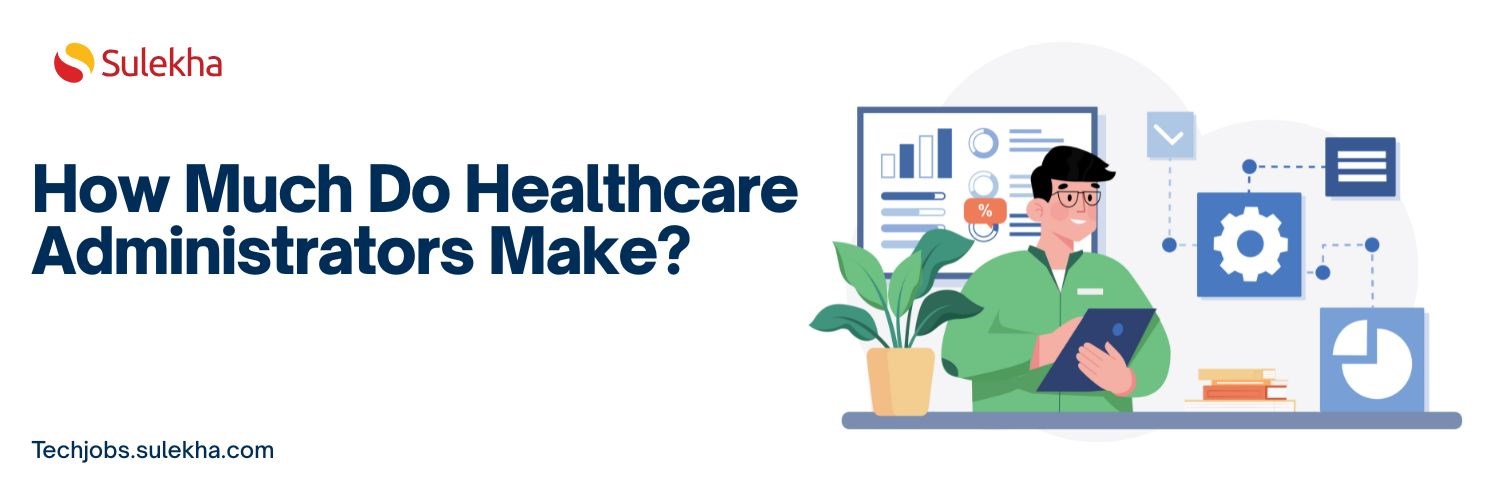
How Much Do Healthcare Administrators Make?
Discover how much healthcare administrators make, the importance of healthcare, career opportunities, and potential job roles. Learn about salary ranges, career growth, and training programs with Sulekha to kickstart your healthcare administration jo
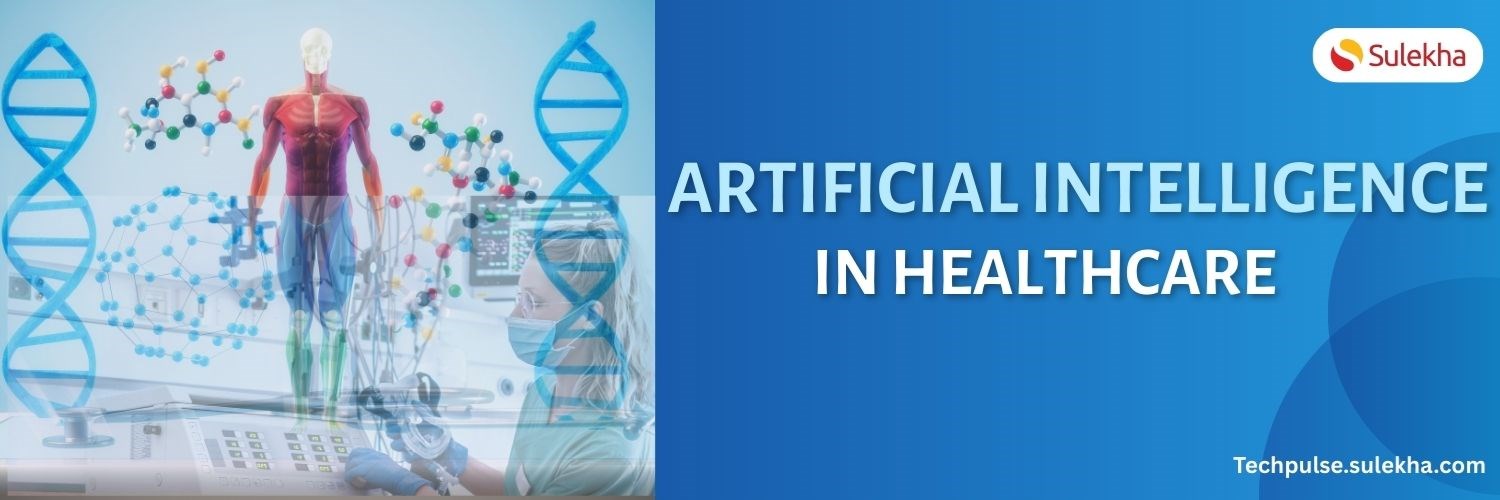
Artificial intelligence in healthcare: Medical and Diagnosis field
Artificial intelligence in healthcare: Medical and Diagnosis field

How to get epic software training and certification
The Epic certification is useful for the healthcare professionals who implement and work on the electronic health care records used in the hospitals and healthcare organizations. To get trained and certified as Epic consultant, you have to work at Ep
Latest blogs on technology to explore

From Student to AI Pro: What Does Prompt Engineering Entail and How Do You Start?
Explore the growing field of prompt engineering, a vital skill for AI enthusiasts. Learn how to craft optimized prompts for tools like ChatGPT and Gemini, and discover the career opportunities and skills needed to succeed in this fast-evolving indust

How Security Classification Guides Strengthen Data Protection in Modern Cybersecurity
A Security Classification Guide (SCG) defines data protection standards, ensuring sensitive information is handled securely across all levels. By outlining confidentiality, access controls, and declassification procedures, SCGs strengthen cybersecuri

Artificial Intelligence – A Growing Field of Study for Modern Learners
Artificial Intelligence is becoming a top study choice due to high job demand and future scope. This blog explains key subjects, career opportunities, and a simple AI study roadmap to help beginners start learning and build a strong career in the AI

Java in 2026: Why This ‘Old’ Language Is Still Your Golden Ticket to a Tech Career (And Where to Learn It!
Think Java is old news? Think again! 90% of Fortune 500 companies (yes, including Google, Amazon, and Netflix) run on Java (Oracle, 2025). From Android apps to banking systems, Java is the backbone of tech—and Sulekha IT Services is your fast track t
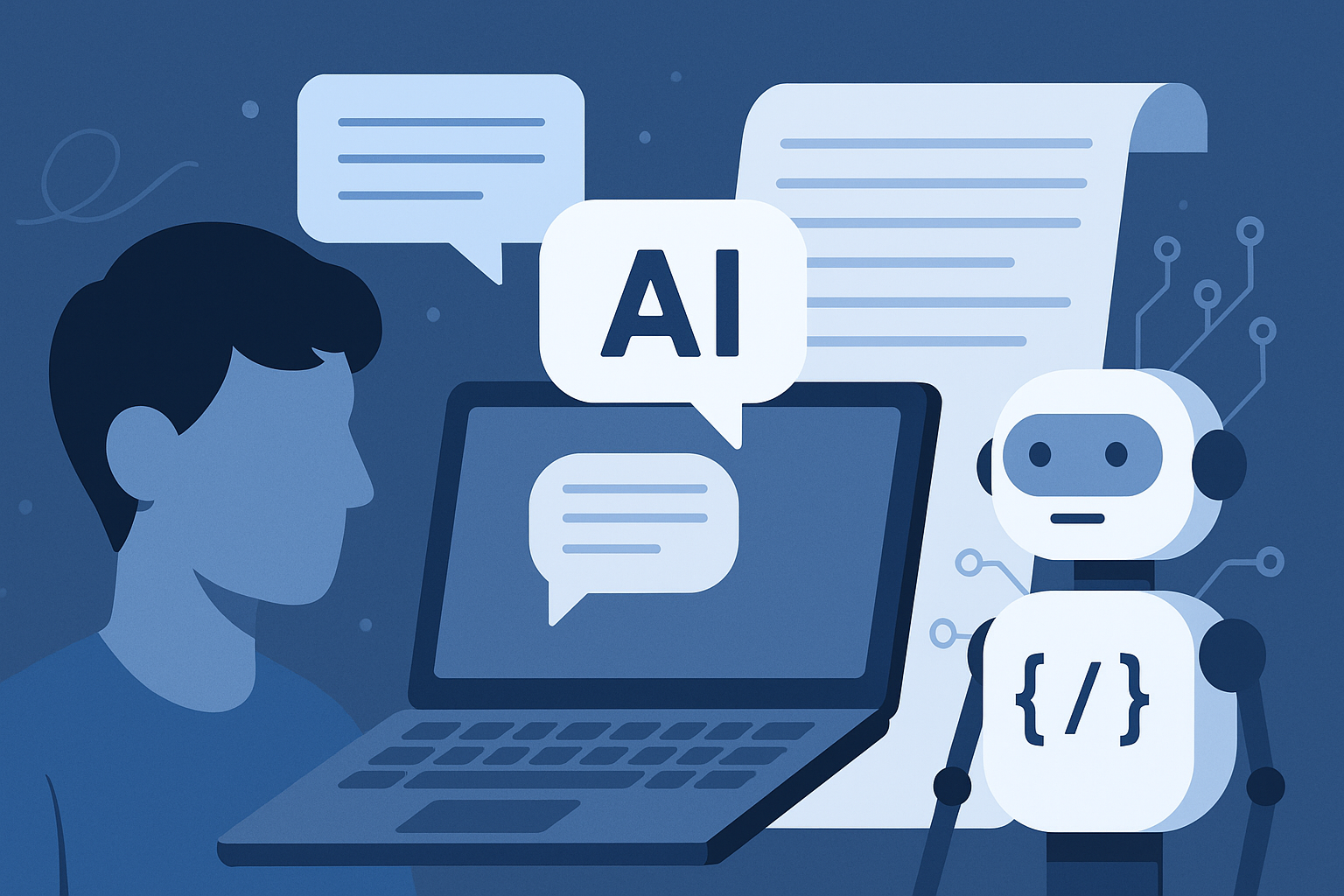
From Student to AI Pro: What Does Prompt Engineering Entail and How Do You Start?
Learn what prompt engineering is, why it matters, and how students and professionals can start mastering AI tools like ChatGPT, Gemini, and Copilot.

Cyber Security in 2025: The Golden Ticket to a Future-Proof Career
Cyber security jobs are growing 35% faster than any other tech field (U.S. Bureau of Labor Statistics, 2024)—and the average salary is $100,000+ per year! In a world where data breaches cost businesses $4.45 million on average (IBM, 2024), cyber secu

SAP SD in 2025: Your Ticket to a High-Flying IT Career
In the fast-paced world of IT and enterprise software, SAP SD (Sales and Distribution) is the secret sauce that keeps businesses running smoothly. Whether it’s managing customer orders, pricing, shipping, or billing, SAP SD is the backbone of sales o

SAP FICO in 2025: Salary, Jobs & How to Get Certified
AP FICO professionals earn $90,000–$130,000/year in the USA and Canada—and demand is skyrocketing! If you’re eyeing a future-proof IT career, SAP FICO (Financial Accounting & Controlling) is your golden ticket. But where do you start? Sulekha IT Serv
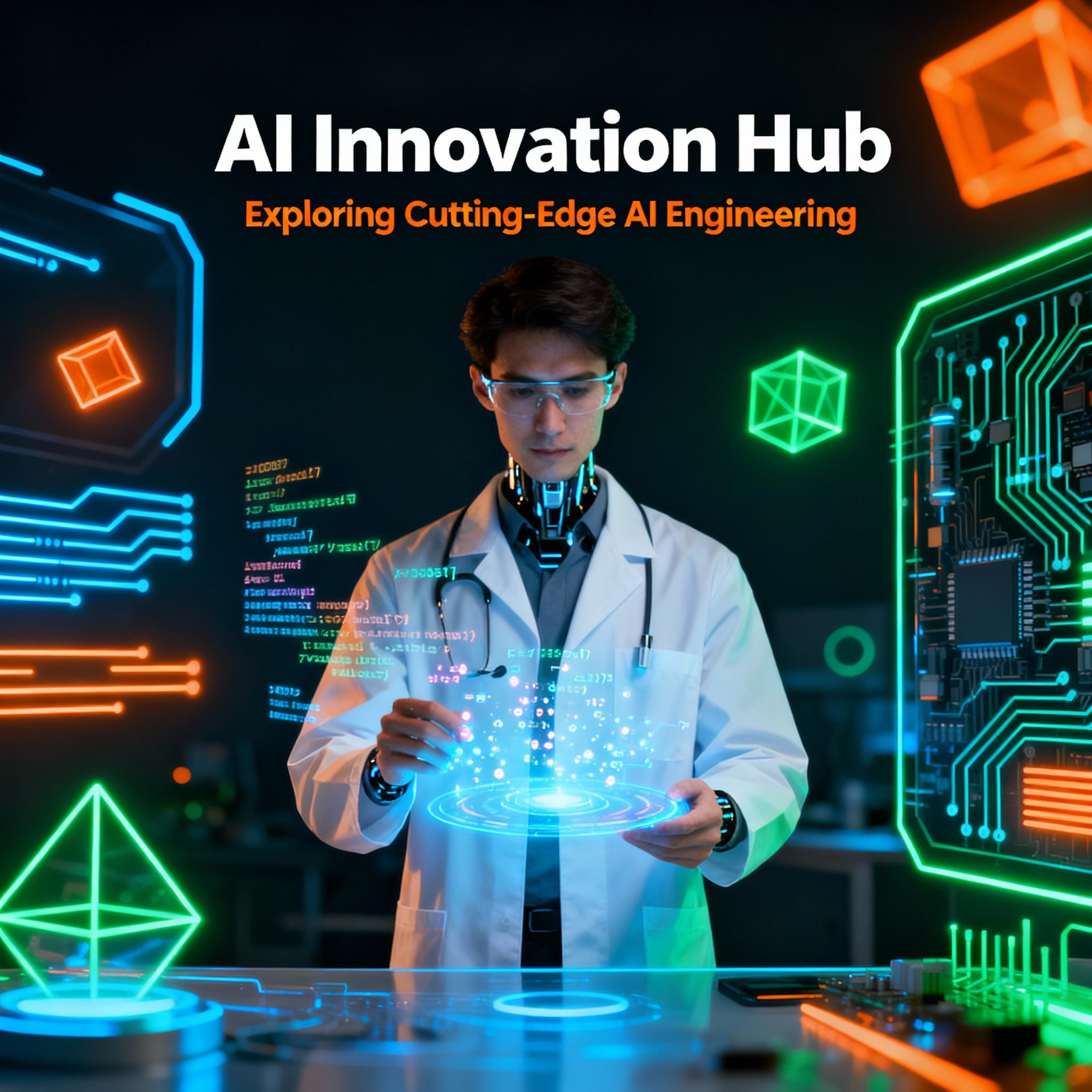
Train Like an AI Engineer: The Smartest Career Move You’ll Make This Year!
Why AI Engineering Is the Hottest Skillset Right Now From self-driving cars to chatbots that sound eerily human, Artificial Intelligence is no longer science fiction — it’s the backbone of modern tech. And guess what? Companies across the USA and Can
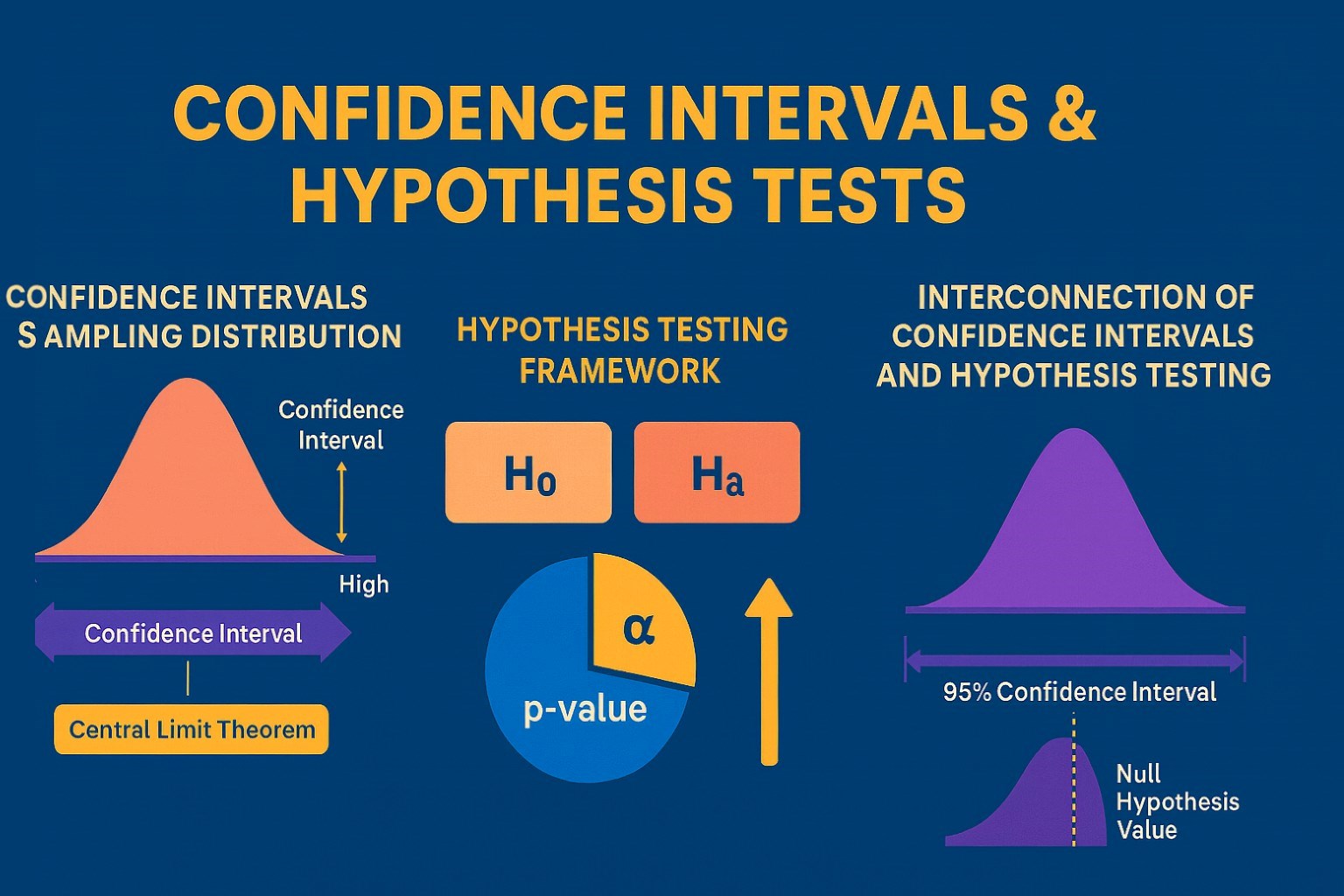
Confidence Intervals & Hypothesis Tests: The Data Science Path to Generalization
Learn how confidence intervals and hypothesis tests turn sample data into reliable population insights in data science. Understand CLT, p-values, and significance to generalize results, quantify uncertainty, and make evidence-based decisions.